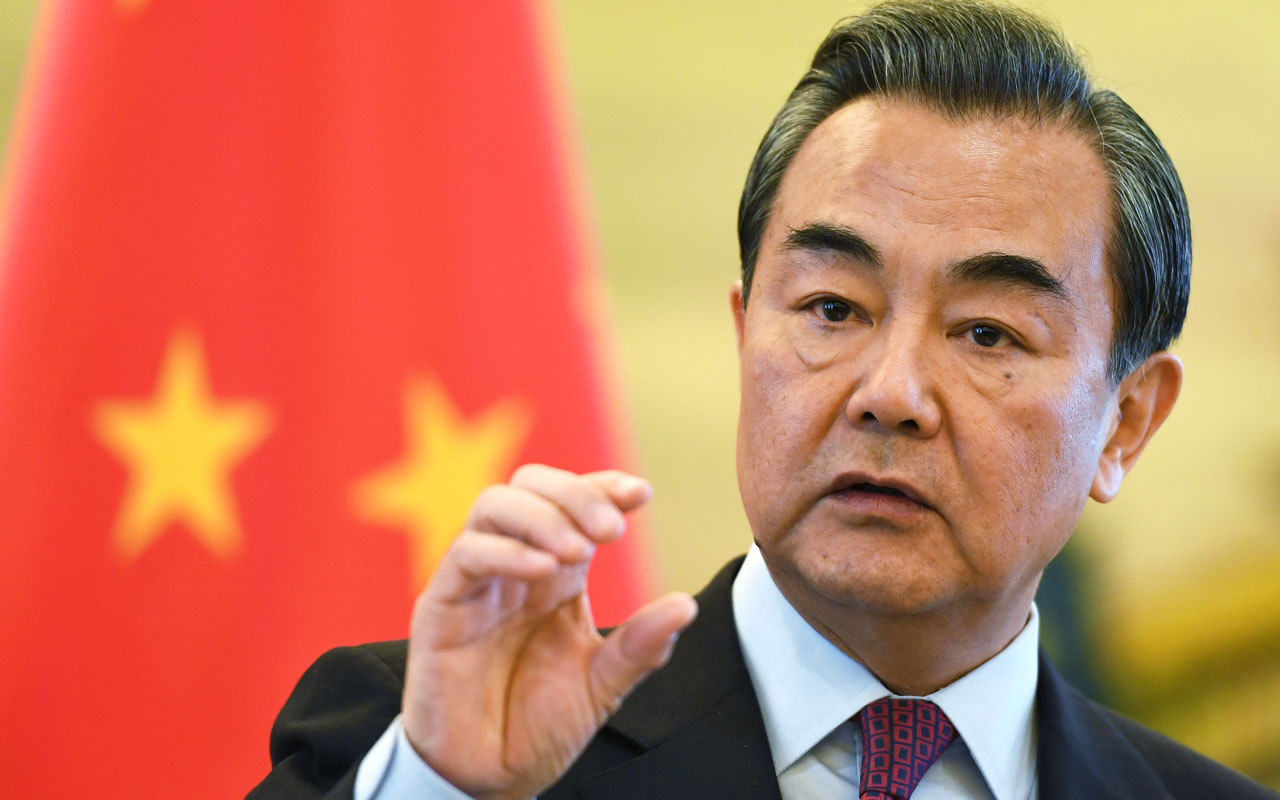- China Warns of War Risk as Trump Rattles Saber at North Korea
China warned that a war on the Korean Peninsula would have devastating consequences as the U.S. threatened military retaliation against North Korea if it proceeds with a nuclear test this weekend.
As U.S. Vice President Mike Pence heads to Asia on a 10-day trip that will include South Korea, Chinese Foreign Minister Wang Yi urged all parties “to stop provoking and threatening each other and not to make the situation irretrievable.”
“Once a war really happens, the result will be nothing but losing all round and no one could become a winner,” Wang told reporters in Beijing on Friday, according to the official Xinhua News Agency.
The world is watching North Korea as speculation mounts that Kim Jong Un’s regime will carry out a ballistic missile or nuclear test this weekend to mark the 105th birth anniversary of his grandfather Kim Il Sung, the nation’s founder, on Saturday.
While President Donald Trump’s administration is ratcheting up pressure on China to contain its neighbor and ally, the U.S. says it’s also willing to act on its own. Administration officials said Thursday it’s considering economic sanctions and military options if a provocation by North Korea occurs.
Pence will discuss the U.S. response when he visits South Korea and Japan as part of his Asian tour. He’ll arrive in Seoul on Easter Sunday, a day after North Korea’s biggest holiday. White House foreign policy aides who requested anonymity to discuss the vice president’s travel say North Korea has telegraphed the possibility of a test to coincide with the occasion.
Warships, Submarines
Pence’s trip comes after Trump dispatched the USS Carl Vinson aircraft carrier and its battle group to the waters around the Korean Peninsula. Commercial satellite imagery of North Korea’s Punggye-ri nuclear test site obtained by 38 North, a program devoted to analysis of the country at the Johns Hopkins University School of Advanced International Studies, showed activity at the site suggestive of preparations for a nuclear test.
“North Korea is a problem,” Trump told reporters at the White House on Thursday. “The problem will be taken care of.”
Any U.S. military strike risks leading to a war between the world’s biggest economies that would threaten to devastate South Korea and Japan, two American allies in striking range of retaliatory attacks. China has backed North Korea since the peninsula was last at war in the 1950s, in part to prevent having an American ally on its border.
The Chinese military dispatched 20 submarines in waters around the peninsula, Yonhap News reported Friday, citing Taiwanese media outlet CNA.
‘Vicious and Aggressive’
Trump’s policy toward North Korea is more “vicious and aggressive” than previous administrations, North Korea’s Vice Foreign Minister Han Song Ryo said in an interview with the Associated Press on Friday.
“We certainly will not keep our arms crossed in the face of a U.S. pre-emptive strike,” he said. “We will go to war if they choose.”
While not publicly defining its plans, the White House has said that all options are on the table to prevent North Korea from acquiring the ability to strike the U.S. with a nuclear weapon. Despite the saber rattling, Trump has found little support — publicly or behind the scenes — from allies South Korea and Japan.
A U.S. strike may prompt North Korea to immediately unleash artillery fire on Seoul and its surroundings, which is home to just more than half of South Korea’s 51 million people, according to a report published by Stratfor last year. It then may activate air or naval assets and larger ballistic missiles that can target South Korean, Japanese or American bases in the region with nuclear, chemical and biological weapons.
The White House expects South Korean officials to discuss responses during the vice president’s visit, and Pence also plans to meet troops and discuss possible military steps with Army General Vincent Brooks, the commander of United States Forces Korea. He’ll promote the deployment of the Thaad missile-defense system in the region, a move that has annoyed China.
Despite the higher tensions, Trump and Chinese President Xi Jinping have shown signs of warmer ties since they met last week in Florida. Trump on Wednesday highlighted China’s move to ban coal imports from North Korea, noting that a fleet of cargo ships had turned back.
“That’s a big step, and they have many other steps that I know about,” Trump said at a news conference. He later said he thought Xi “means well and I think he wants to help.”
The Global Times, a Communist Party-affiliated Chinese newspaper, argued in an editorial this week that Beijing should support stiffer UN sanctions against North Korea, including the limit of oil exports, if the country conducts another another nuclear test.
Even so, China is getting increasingly alarmed at the brinkmanship.
“The situation now is similar to the time before a storm, and this kind of dangerous situation worth of our attention and we must be alert,” Wang, China’s foreign minister, said on Friday. “No matter who the nation is, if it continues to provoke wars in the Peninsula, it has to bear this historical responsibility and pay its price.”


 Forex3 weeks ago
Forex3 weeks ago


 Naira2 weeks ago
Naira2 weeks ago
 Billionaire Watch2 weeks ago
Billionaire Watch2 weeks ago




 Naira3 weeks ago
Naira3 weeks ago




 Naira2 weeks ago
Naira2 weeks ago




 Naira1 week ago
Naira1 week ago




 Naira4 weeks ago
Naira4 weeks ago




 Naira4 weeks ago
Naira4 weeks ago





















